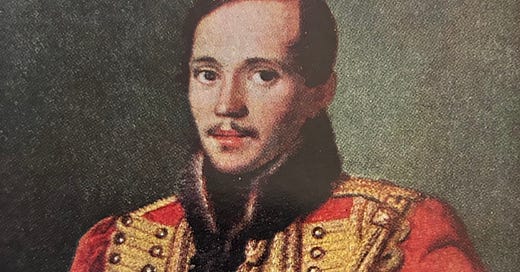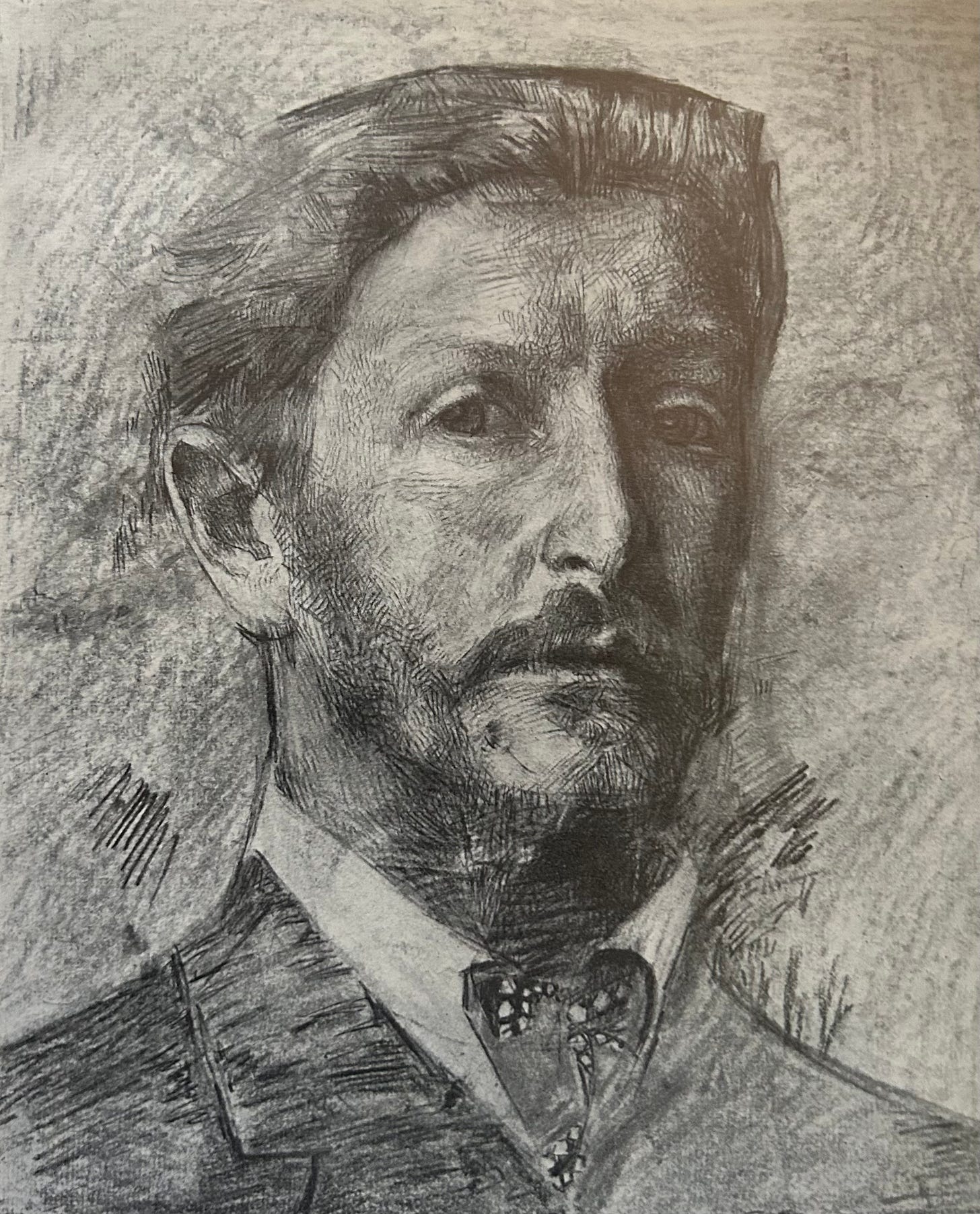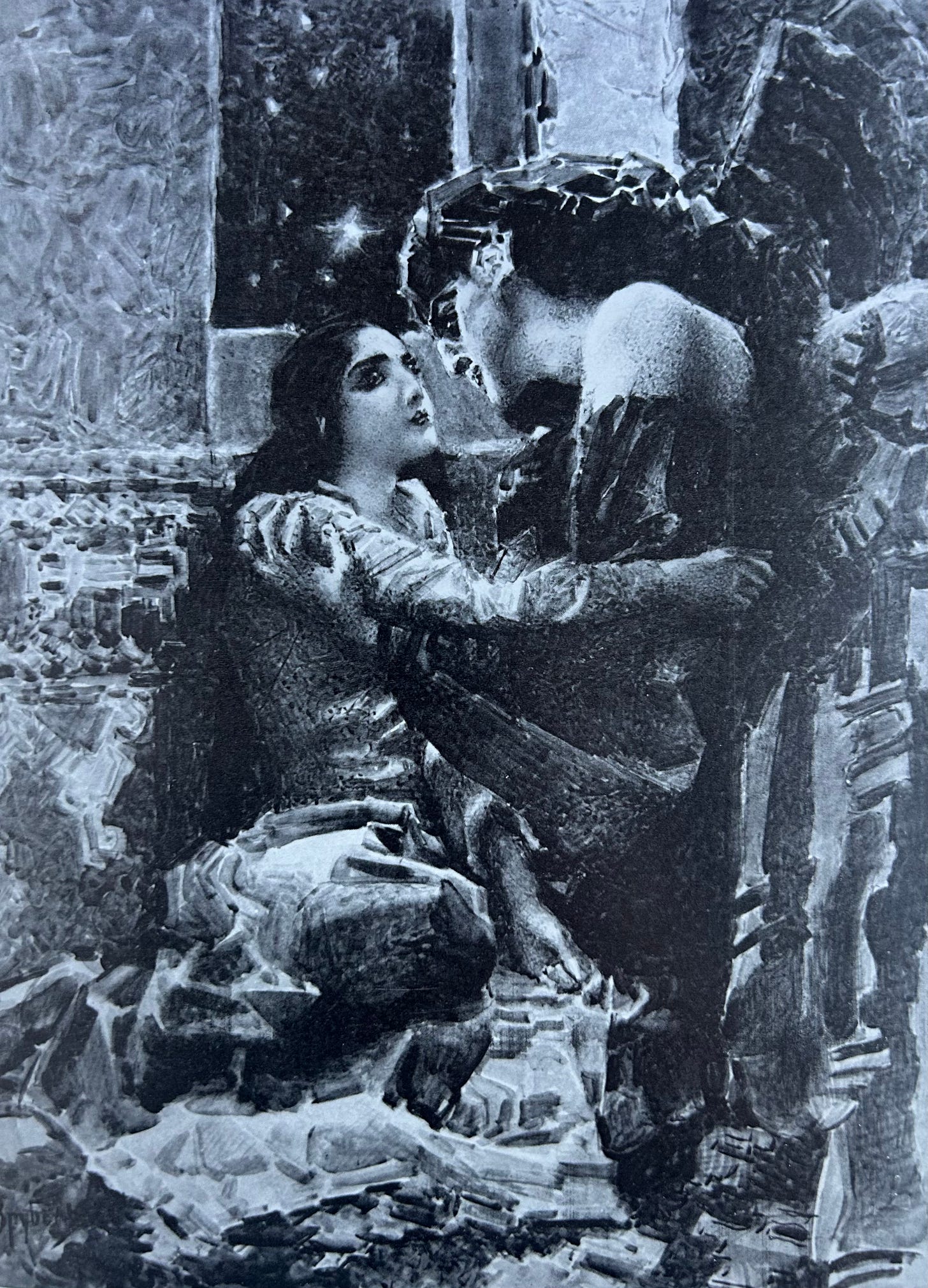My answer to David Alexander, who visited Piatigorsk and is interested in Lermontov’s duel and Vrubel’s painting of Lermontov’s Demon.
Poet Michail Lermontov, 1814-1841
Painter Michel Vrubel
1856-1910
I
Our best poet of the 19th century, (after the fatal Pushkin’s duel), Mikhail Lermontov, from his 15 years of life, was obsessed with the image of the romantic Demon, rebellious spirit of expulsion from God’s dominion to the sinful earth. All his short life, he returned several times to the poem about the Demon, and at last, in 1839, after finishing the poem, he went to Petersburg to publish it, but was sent back to his regiment in the Caucasus by the Tsar’s police. He, as Pushkin before him, was in disgrace at the Tsar’s court. Actually, his angry poem about the death of Pushkin made the Tsar send him to the Caucasus in the first place because Lermontov openly and angrily accused the Tsar and his court of the loss of the best poet in Russia. And now, two years later, Tsar refused again to let him stay at the capital even for a short time during his vacation from the Caucasus Cavalrymen Guard.
Demon’s character was poetically the reflection of Lermontov’s character in many ways. Loneliness was well known to him from his childhood. He was a sick child, had no friends, his mother died young, and his rich, imperious grandmother took his upbringing on herself. Born in Moscow, he loved the city, but his real love became the Caucasus, where his grandmother took him for medical treatment for scrofula. From that time of his childhood to the end of his life there, the Caucasus Mountains are sacred to me, he wrote. The height of the mountains, the depth of their gorges, the bravery of the mountain people- all that expressed his own rebellious character. He chose the Caucasus as a place for all his major works- Mtsyri, Hero of Our Time, or Demon. Lermontov‘s rebellious character was the basis for the Demon’s character in his poem.
He was thrown out of Moscow university because he didn’t attend the lectures, although on the exams he showed the best knowledge of literature; in the Petersburg, in the Gard school of the Cadets, as Nikolai Martynov remembers (who killed Lermontov later on duel), Lermontov excelled his comrades so much that it’s even impossible to draw a parallel between him and them. Besides, he was very quick with irony, ridicule, especially mockery in verses, and it was hard to be his friend. His appearance didn’t help him among the dames of high society of Piatigorsk, their main city, either. He was medium height, stooping, and not handsome.
Among the ladies, he didn’t expect any success. And he was desperately in love. You can find all these characteristics in his brilliant poetry, but the best one is Demon with the subtitle, The Eastern Narrative. A poem in Russian is the whole narration, placed into chapters with the development of some action. There are XYI chapters and several characters, but the main ones are the Demon and young Tamara. She is having a premarriage party at her father’s house and dances for the last time among her friends, waiting for her fiancé, whom she has never met. But on his way to her, he was killed by a mean Ossetin and his friends who wanted to steal all his goods and wedding presents. Her dead fiancé was brought to her house by his horse, and poor, beautiful Tamara, all in tears, mourned him and her life.
Poor Tamara is sobbing;
Tear after tear is rolling.
And suddenly, as if she hears
The magic voice over her:
Don’t cry, my child! Don’t cry in vain!
…………………..
Words stopped…
Stranger, hazy and silent,
Shining by his unearthly beauty,
Bent to her head
And his look with his love was so sad,
As he pitied her.
It was the Demon. Flying over Tamara’s house, he saw a beautiful young girl. He fell in love with her.
Lermontov gives a brilliant characteristic to his Demon:
Печальный Демон, дух изгнанья, Sad Demon, the spirit of exile,
Летал над грешною землей, Was flying over sinful earth,
И лучших дней воспоминанья And memory of his best days
Над ним теснилися толпой. Crowded over him.
Счастливый первенец творенья! Happy firstborn of the Creation!
Не знал ни злобы, ни сомненья He knew no malice, no doubt
Когда он верил и любил. When he hoped and loved.
But that blissful time sank into oblivion and :
Давно отверженный блуждал He, outcast long ago, roamed
В пустыне мира без приюта. In the world’s desert without shelter.
Ничтожной влавствуя землей, Ruling over the worthless land,
Он сеял зло без наслажденья He sowed evil without delight
И зло наскучило ему. And evil had bored him.
Flying over his worthless domain, He reached Kazbek’s diamond verges:
And wild and marvelous was
God’s world, but his proud spirit
Looked around with his scorn
Over the creation of his God.
And everything he saw in front of him
He despised or hated.
And in this moment of disdain and boredom, he stopped before the beautiful, grieving Tamara. The poet demonstrates the Demon’s seducing of Tamara and her weak attempts to resist because she feels he is a cunning spirit.
Listen, you are destroying me!
Your words— fire and poison…
Tell me, why do you love me?
Demon’s answer is shocking by its ordinariness (why do we all love?):
- Alas! I don’t know.
Full of new life, I proudly took off my crown of thorns
I threw out my past into the dust:
My heaven, my hell, is in your eyes.
[I] Love you with unearthly passion,
As you can’t love me:
With all the ecstasy, all the power of
Immortal thought and dream!
Your image was imprinted into my
Soul from the start of the world.
He persuades her: O, believe me! / Choosing you as my worship / I placed my power at your legs /Your love I wait as a gift/ And I give you eternity for one instant: / In love, as in hate, believe, Tamara, / I am devoted and great!
He offers her all the earthly possibilities - love me! His flattery, his adulation, his strong look burned the poor girl.
Alas! Mean spirit triumphed…
Deathly poison of his kiss
Instantly penetrated her blood
Excruciating, but weak cry
Roused the night's silence
All was in it: love, suffering,
Reproach with the last entreaty
And the hopeless farewell-
Parting with her young life!..
But it’s not the end yet. During the burial, a snowstorm broke out, but from the clouds an angel descended on the Tamara grave and prayed heartily for her sins.
At the same time, Demon, “tsar’s vice,” with his sorrowful face and crimson lightning, following his wings, flies to Tamara’s grave, where he sees an angel:
When he saw what
He loved and hated in front of him,
He flew by, passing noisily
And casting his penetrating glance,
He charged an ambassador of a lost
Paradise with his bitter smile…
The demon lost Tamara to an angel.
In his dedication to his forgetful, but unforgettable friend (no name), he describes his Demon as a heavy delirium of a sick soul.
There are six variants of the Demon. If he hadn’t been killed so young at 27, in a duel with his so-called friend Martynov, whom he called martysh, meaning -monkey, we don’t know what the last variant of Demon he would leave to us. Moreover, Lermontov went to a duel in a good mood, because he decided not to shoot Martynov and believed that Martynov would do the same. Lermontov shot in the air, Marynov- into him, and the life of our genius was over on his 27th year. The reason for the duel was rather silly: Martynov didn’t like how Lermontov talked about his sister. Interestingly, his last four-line improvisation was on the theme of life and death:
They want my life,- well, let them have it.
Not I to pity it.
They gain a mass of poisonous snakes
In their heritage.
The poem was published only in 1859, 18 years after his death, but it became famous before it was published. Demon, challenging sky, God, heaven, and hell, proud and independent, became the most attractive character for composers and artists.
II
Rimsky-Korsakov introduces his opera Demon, V. A. Serov portrays his Tamara and Demon, but the most constant and poignant idea of Demon belongs to Vrubel. He came to painting rather late, after graduating from Petersburg University with a diploma in jurisprudence. He always loved drawing and painting, but his father insisted on a more practical profession, and Vrubel followed his father’s wish. But he couldn’t go against his own wishes to paint anymore, and went to the Academy of Art, supporting himself by tutoring in Latin, German, and French.
After the Academy, in 1889, he was invited to Moscow to illustrate Lermontov’s publication for his jubilee. From that time, his obsession with the Demon started. He painted the Demon in the study of the house of the patron of the Arts, Mamontov. He writes to his sister: A Demonic, half-naked, winged, young, downcast, and thoughtful figure sits, embracing his knees, and looks on the flowering glade.
Vrubel, Sitting Demon
His contemporaries claimed that he burnt many variants of the Demon, unsatisfied by his work. The others wrote that the Demon’s appearance- his head with its huge, burning eyes, tragic, sharp bend of his mouth, connected to the theatrical opera performers of the Demon. (I saw a photo of the famous Shaliapin in the role of the Demon, and he looked exactly as Vrubel’s Demon, but Shaliapin sang after Vrubel’s death, before the Revolution.) Vrubel conveys the Demon’s strength, constrained by his suffering melancholy, and tired from unnecessary power. His oath to Tamara is omnipotent and passionate, but in the end, powerless. But how to infuse it into painting, those sacred words:
[I] Swear by the first day of creation,
Swear by its last day,
Swear by the shame of crime,
And eternal truth’s triumph.
………………
Swear by the sky and by hell, by
Earthly saintness and by you,
Swear by your last look
By your first tear…
During the exhibition in Petersburg, visitors see Brubel endlessly working on his last painting of the plunged into despair Demon, prostrated on the earth. He didn’t finish his Demons; he spent his later years in the private psychiatric clinic in Moscow, where he died.
Such a tragic story of two Russian geniuses connected to the spiritual figure of the Demon.








I am so glad that my essay about the Russian poet and painter found so much response. Thank you to all who didn't leave their names (?) for reading it.
Thank you, Ariel Hessayon, for reading and liking my essay about Russians. I also love English literature from my childhood.